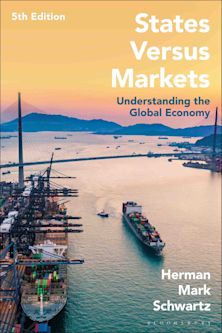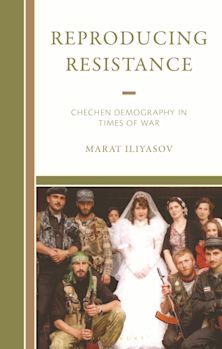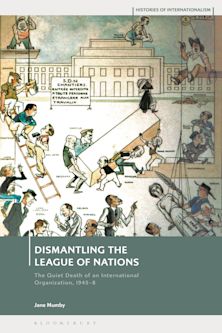- Home
- ACADEMIC
- Politics & International Relations
- International Relations - Other
- Making and Breaking Democratic Transitions
Making and Breaking Democratic Transitions
The Comparative Politics of Russia's Regions
Making and Breaking Democratic Transitions
The Comparative Politics of Russia's Regions
This product is usually dispatched within 2-4 weeks
- Delivery and returns info
-
Flat rate of $10.00 for shipping anywhere in Australia
You must sign in to add this item to your wishlist. Please sign in or create an account
Description
Focusing on the vastly different outcomes of post-Soviet regime transitions, this study explores why some societies have become more democratic and some have not. Based on in-depth comparative analyses, the book assesses political developments in six of Russia's regions (Saratov, Nizhnii Novgorod, Volgograd, Ryazan', Ul'yanovsk, and Tver' oblasts) since 1988. The authors consider the influence of Soviet governance systems on the emergence of cleavages and new actors in the post-Soviet period. They also analyze the impact of institutional changes on regional regimes and the success or failure of formal institutions as a framework for political competitiveness. Placing their detailed field data within the larger comparative and theoretical context of political transitions, the authors are able to explain the mixed outcomes of post-communist regime change in Russia and other post-Soviet nations. With its innovative model of path-contingent democratization and its new typology of political regimes and regime transitions, this book will be essential reading for all scholars of democracy.
Table of Contents
Chapter 2 Transformations and Regimes: Uncertainty and its Consequences
Chapter 3 Regional Political Regimes and Governance Systems in Russia
Chapter 4 Saratov Oblast': Winner Takes All
Chapter 5 Nizhnii Novgorod Oblast': The Limits of Elite Settlement
Chapter 6 Volgograd Oblast': Structural Pluralism and Fragile Bicentrism
Chapter 7 Ryazan' Oblast: From Structural Dualism to Elite Settlement
Chapter 8 Ul'yanovsk Oblast': Transition without Elite Change
Chapter 9 Tver' Oblast': Proto-Politics
Chapter 10 Comparative Perspective: Political Dynamics of Regime Change
Chapter 11 Conclusion
Product details
| Published | 12 Jan 2005 |
|---|---|
| Format | Paperback |
| Edition | 1st |
| Extent | 320 |
| ISBN | 9780742525610 |
| Imprint | Rowman & Littlefield |
| Dimensions | 228 x 153 mm |
| Series | The Soviet Bloc and After |
| Publisher | Bloomsbury Publishing |
About the contributors
Reviews
-
This is a profoundly important contribution to the field of Russian studies likely to influence how we conceive political change in Russia for many years to come.
The Russian Review
-
[Gel'man's] summaries of transitology and Russian political science will be useful to specialists both in Russia and the west, and this is a powerful statement of the need for systematic comparison.
Slavic Review
-
Making and Breaking Democratic Transitions marks a major contribution to the literature on comparative politics from the younger generation of Russian political scientists. An authoritative analysis of developments in Russia?s regions is placed within a refreshingly intelligent new model of regime change. Not only is this a pathbreaking book in the study of post-Communist regimes, and of Russia in particular, but it will interest anyone thinking and writing about transitions?of all kinds....
Mary McAuley, author of Russia's Politics of Uncertainty
-
Making and Breaking Democratic Transitions is required reading for anyone interested in understanding Russia's protracted transition from communist rule. Most importantly, the book deploys the comparative method to discuss the often-neglected regional dimensions of transition. The regional focus makes important insights about transitions in large states that contributes to our more general understanding of democratization beyond the Russian case. It is a serious book by a superb collection of authors that mixes interesting theory and original empirical research.
Michael McFaul, Stanford University
-
Vladimir Gel'man and his colleagues add enormous depth to our picture of Russia's troubled transition by systematically comparing dynamics and results across the regions of the country. This study tells us all more, not only about the Russian experience, but about regime change in the contemporary world.
Timothy J. Colton, Harvard University
-
Making and Breaking Democratic Transitions marks a major contribution to the literature on comparative politics from the younger generation of Russian political scientists. An authoritative analysis of developments in Russia's regions is placed within a refreshingly intelligent new model of regime change. Not only is this a pathbreaking book in the study of post-Communist regimes, and of Russia in particular, but it will interest anyone thinking and writing about transitions-of all kinds.
Mary McAuley, author of Russia's Politics of Uncertainty



































